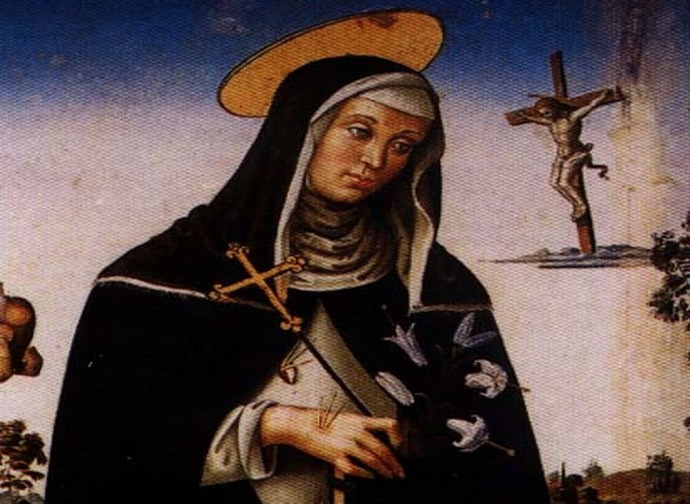Saint Margaret of Hungary
Saint Margaret came from an extraordinary family. Her aunt was the famous Saint Elizabeth († 1231), sister of Béla IV of Hungary, Margaret's father (1242-1271). Blessed Yolanda and Saint Kinga of Poland were her elder sisters, while her mother was Maria Laskarina, daughter of the Byzantine emperor Theodore I Laskaris.

Saint Margaret came from an extraordinary family. Her aunt was the famous Saint Elizabeth († 1231), sister of Béla IV of Hungary, Margaret's father (1242-1271). Blessed Yolanda and Saint Kinga of Poland were her elder sisters, while her mother was Maria Laskarina, daughter of the Byzantine emperor Theodore I Laskaris.
Princess Margaret was born in the fortress of Klis, Dalmatia, where the court had taken refuge to escape the invasion of the Mongols led by Batu Khan (grandson of Genghis Khan) who, on 11th April 1241, had faced the Hungarians in the battle of Mohi. At Margaret's birth her parents made a vow, promising the child to God for the liberation of Hungary from the Mongols. In fact, after devastating the region, the Mongols withdrew unexpectedly two months later, allowing the royal family to return and slowly begin the reconstruction work. When Margaret was 3 years old, they entrusted her for education at the Dominican monastery of Veszprém; six years late, she was transferred to the monastery of the Blessed Virgin, founded by her own parents on Hares' Island, now Margaret Island, in today's Budapest.
Here that the Saint spent the rest of her earthly life, opposing Béla's attempts to make her marry Ottokar II of Bohemia to consolidate the kingdom, despite the vow he had made to God. Margaret, who had consecrated herself totally to the Lord at 12 years old, took this promise very seriously and her father had to desist (he would eventually become a Franciscan tertiary). The vow he had made with his wife proved to be a grace, which their daughter was happy to comply with: "I esteem infinitely more the King of Heaven and the inconceivable happiness of possessing Jesus Christ than the crown offered me by the King of Bohemia".
In the monastery she carried out the humblest jobs, practised a strict asceticism, prayed constantly and meditated, particularly on the Passion, wishing to share the sufferings of Christ. Her love for the Eucharist was accompanied by a love of poverty and the Holy Scriptures, which she had read to her by his confessor and spiritual guide, a friar named Marcellus, who was prior of the Hungarian Dominican province. She was endowed with the gift of visions and an intense mystical life, and died at the age of 29 in odour of holiness. Her tomb soon became a destination for pilgrimages.
